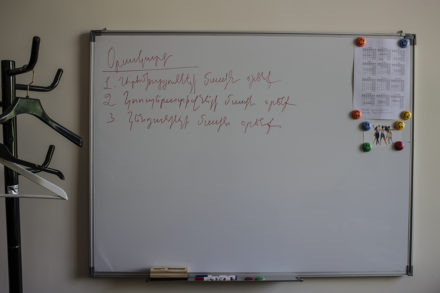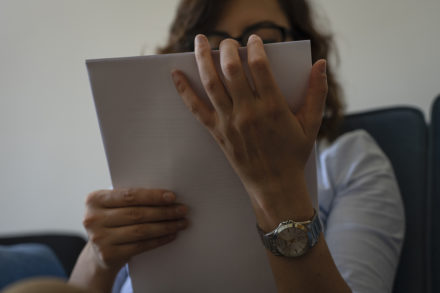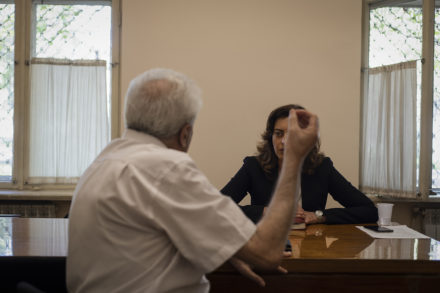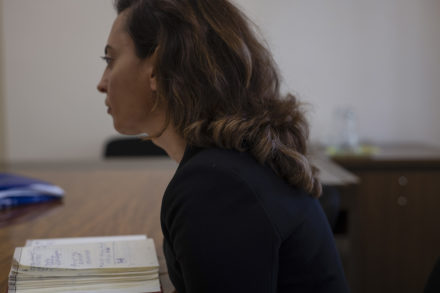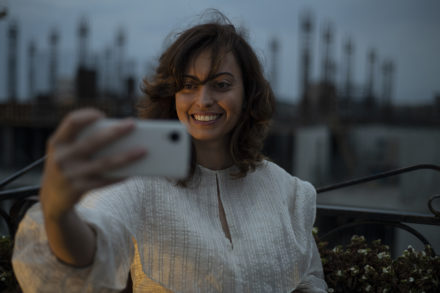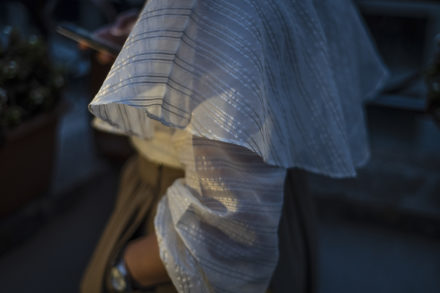I find it difficult to choose a topic to photograph, I think, I research for a long time. As a photographer I often turn to women, to their changing role in the life of the society. It is interesting for me.
For example – women in politics. Is it possible in Armenia? Do we consider it an extraordinary, unique thing? Is it because it’s difficult for women in Armenia?
In July, 2018, our conversation with Lena Nazaryan began with this question in a cafe, which is very often directed to her by the journalists.
From an activist in civil undertakings to a deputy in the National Assembly of Armenia. Lena says that it’s nothing out of logic, she wants a woman be perceived in politics as something very usual. There is no problem of equality of rights for women in Armenia, there is a problem of equality of resources, she says. As she views it, there are four important resources for social activism – time, money, social assistance, and energy.
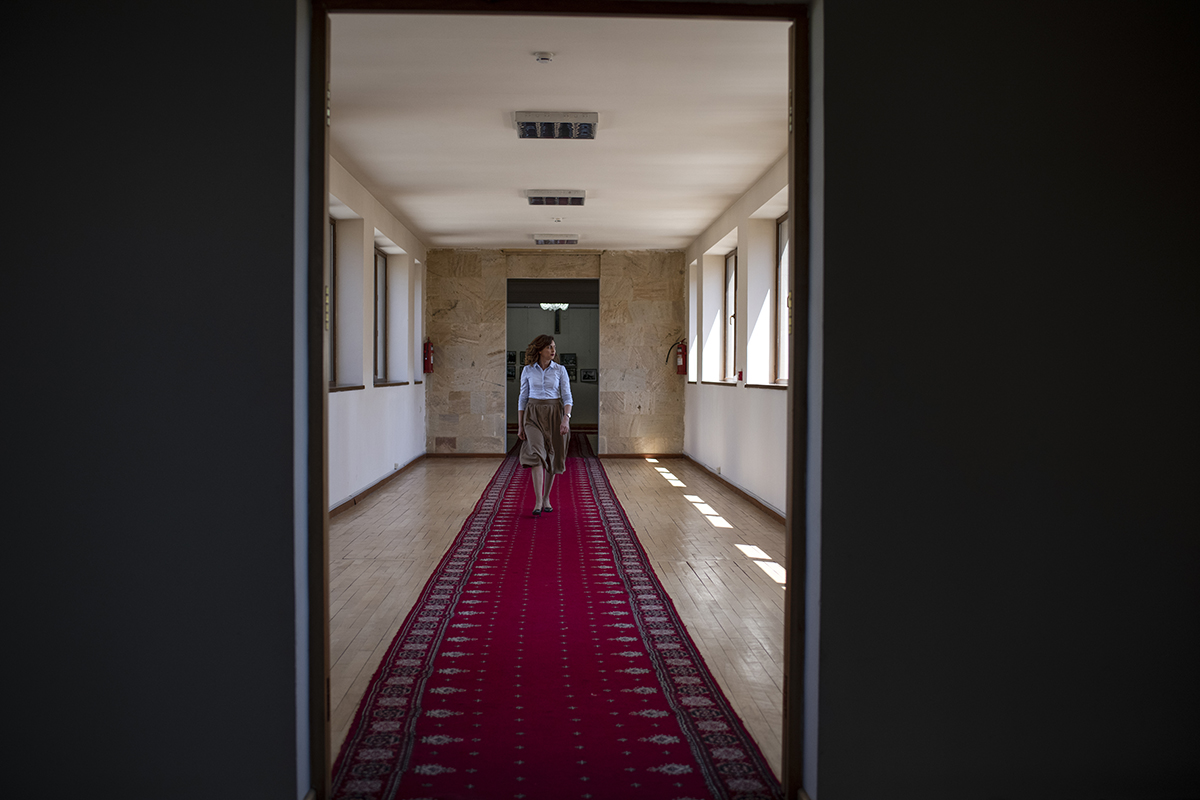
Lena Nazaryan in the corridors of the National Assembly building. “In the very beginning when I went to the National Assembly, I decided to get acquainted with the administrative staff there. When I greeted them, they asked whose assistant I was. Even inside the NA they didn’t know who I was. During the one year of being a deputy, I was feeling rejected inside. When the situation changed, things changed for me too. The attitude of people suddenly changed. When passing through the corridors of the NA, I feel that people notice me”.
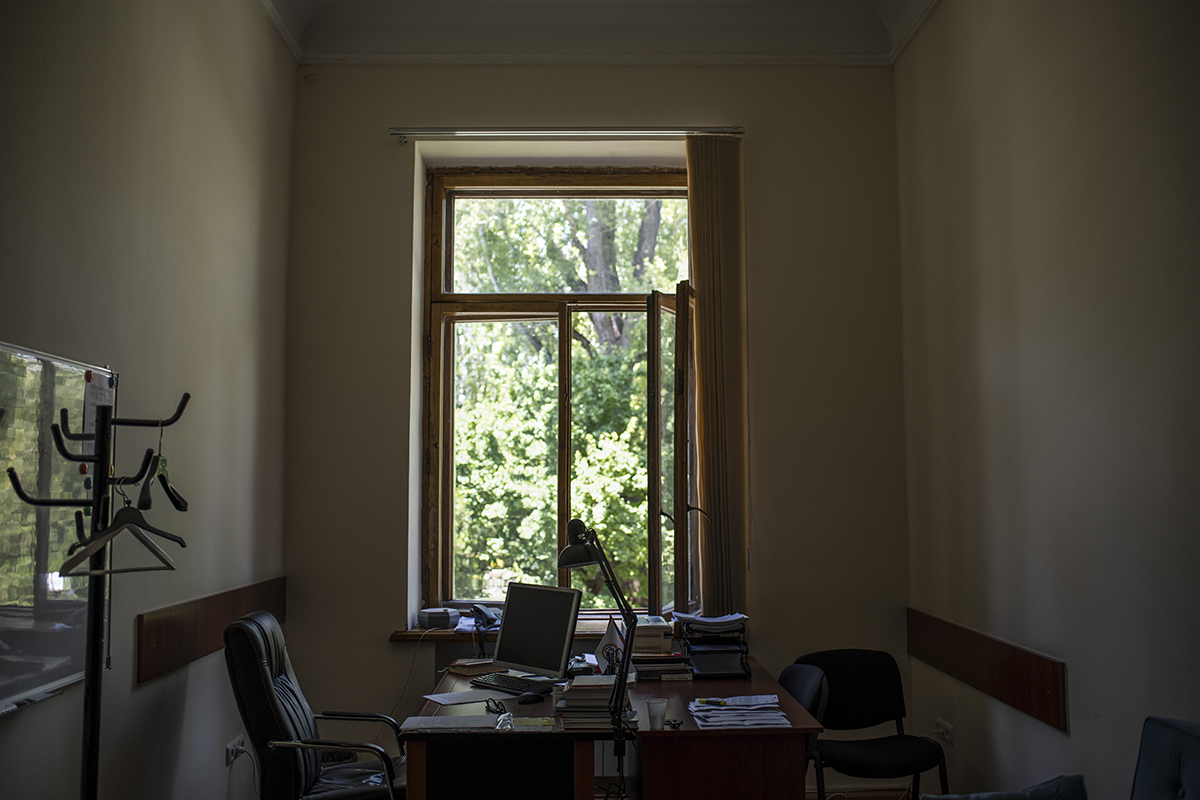
Lena Nazaryan’s previous working office of the NA. During this photo story Lena was elected as the head of the “Yelk” faction.
Lena’s working room. On the blackboard one can see the principal issues, which form Lena’s daily agenda.
Lena is reading the speech of the Prime-Minister.
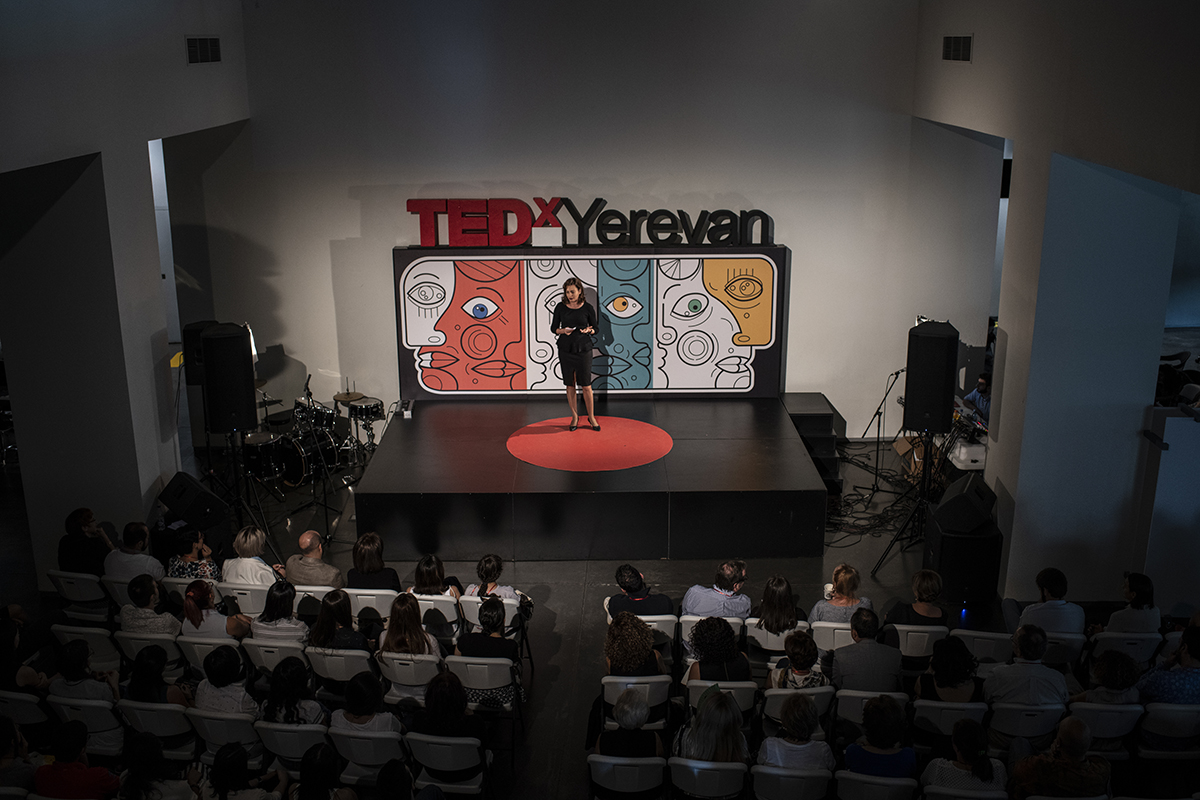
Lena is having a talk at TEDx Yerevan: she is telling about the April revolution.
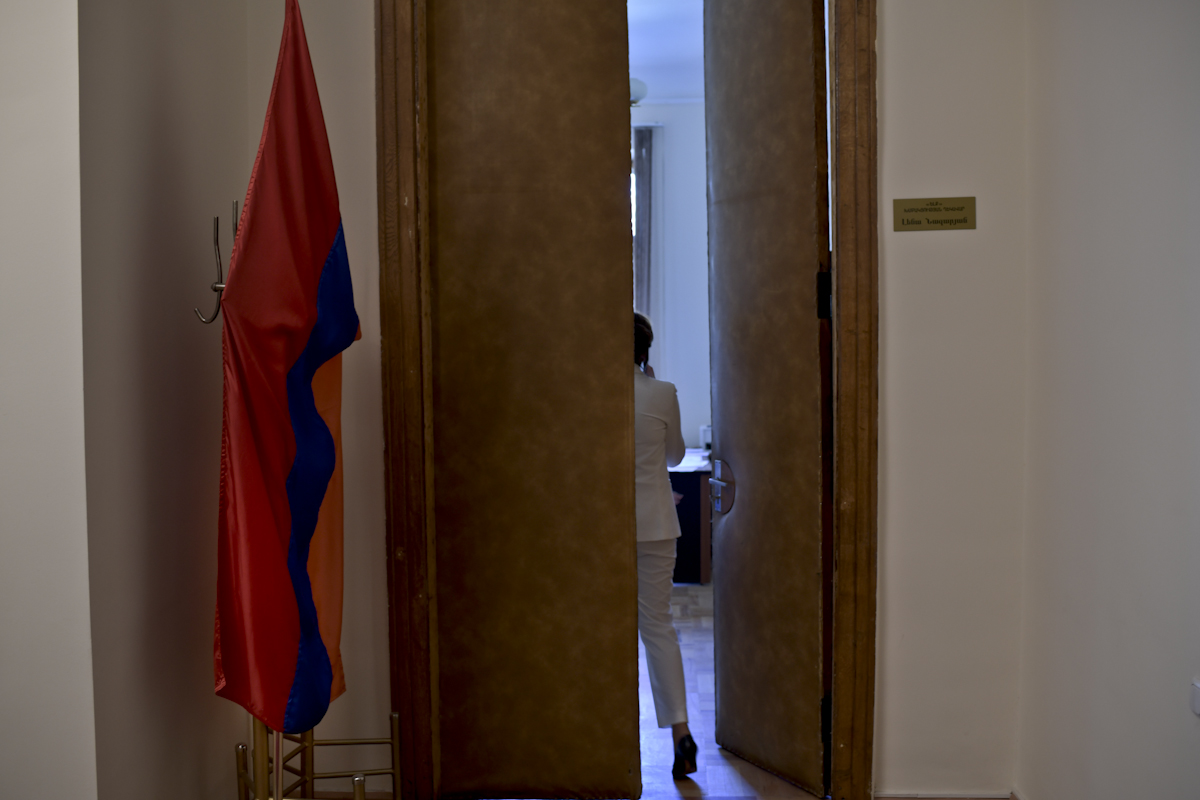
In September, 2018, the NA faction “Yelk” elected Lena Nazaryan as the faction head.
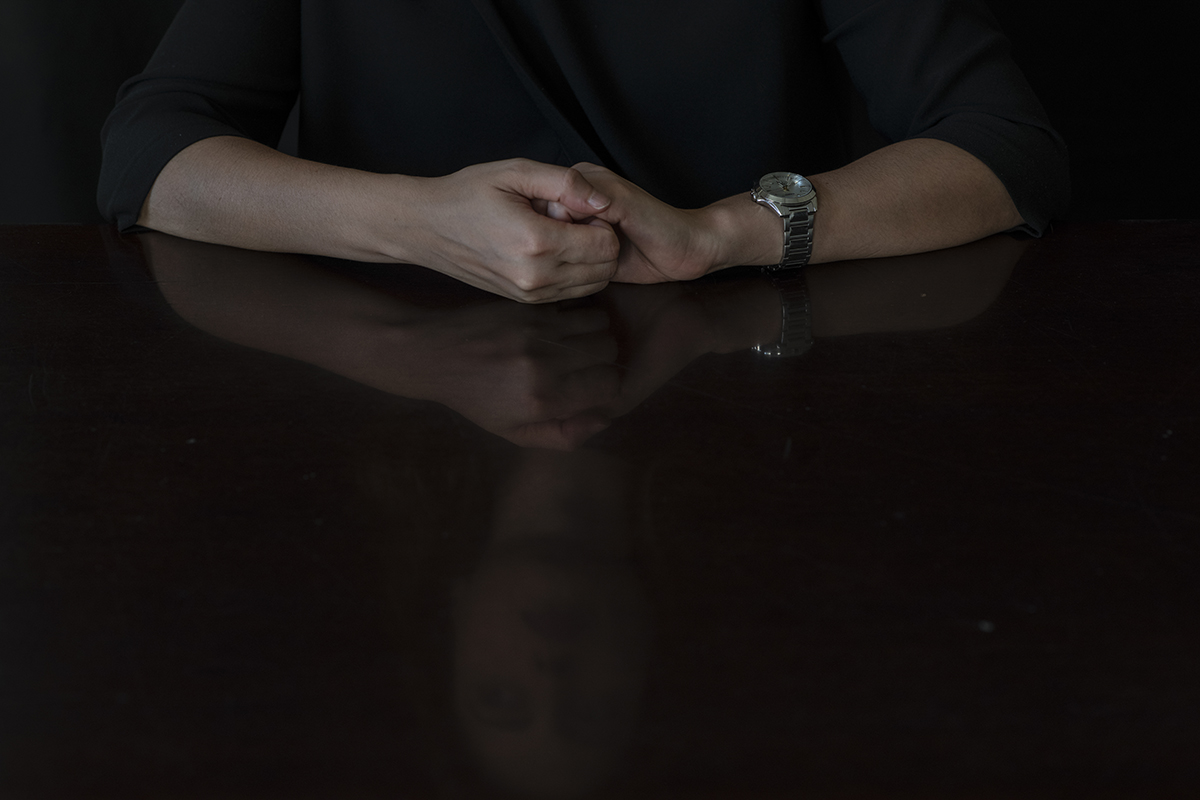
Lena’s hands. “On the whole, the road of overcoming the fears is the most preferable for me, because I have many fears, and for overcoming them, I always place myself in such situations, which give me the opportunity to overcome those fears.”
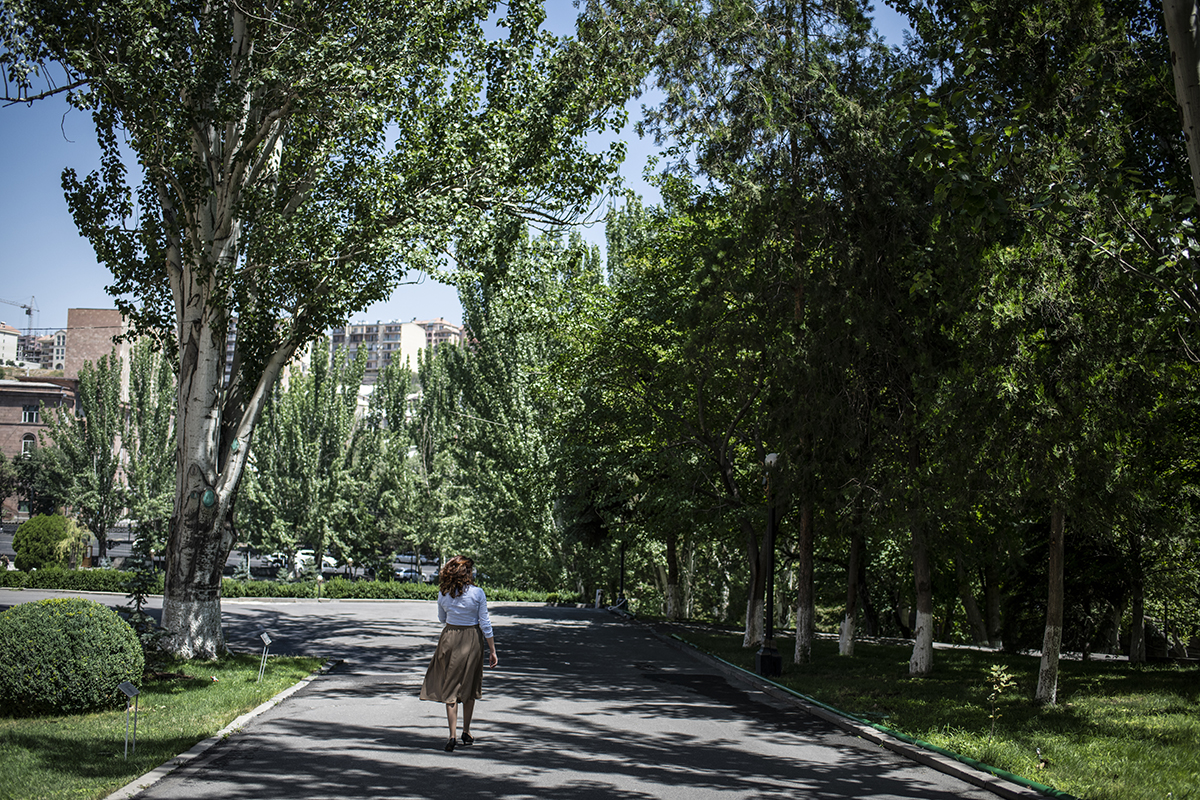
In the yard of the NA. “I sometimes forget that I am a deputy, that I can, with the help of my deputy document, enter many different institutions. I turn to my mandate in very extreme situations. People feel that. I am always in the mood of cooperation. I am mostly interested in the change of the perception of people during my activity.”
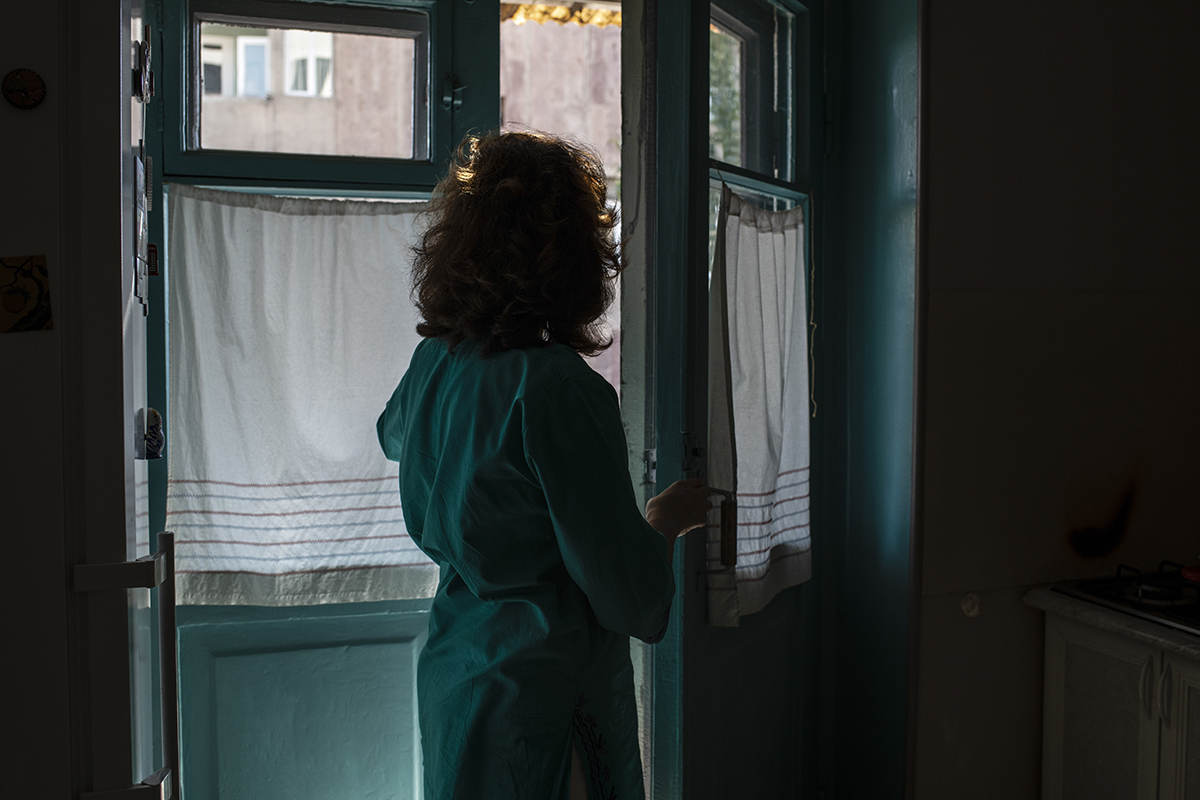
Lena in the kitchen. She doesn’t pass much time at home because of her all-time business. But sometimes on Sundays she bakes waffles with pleasure.
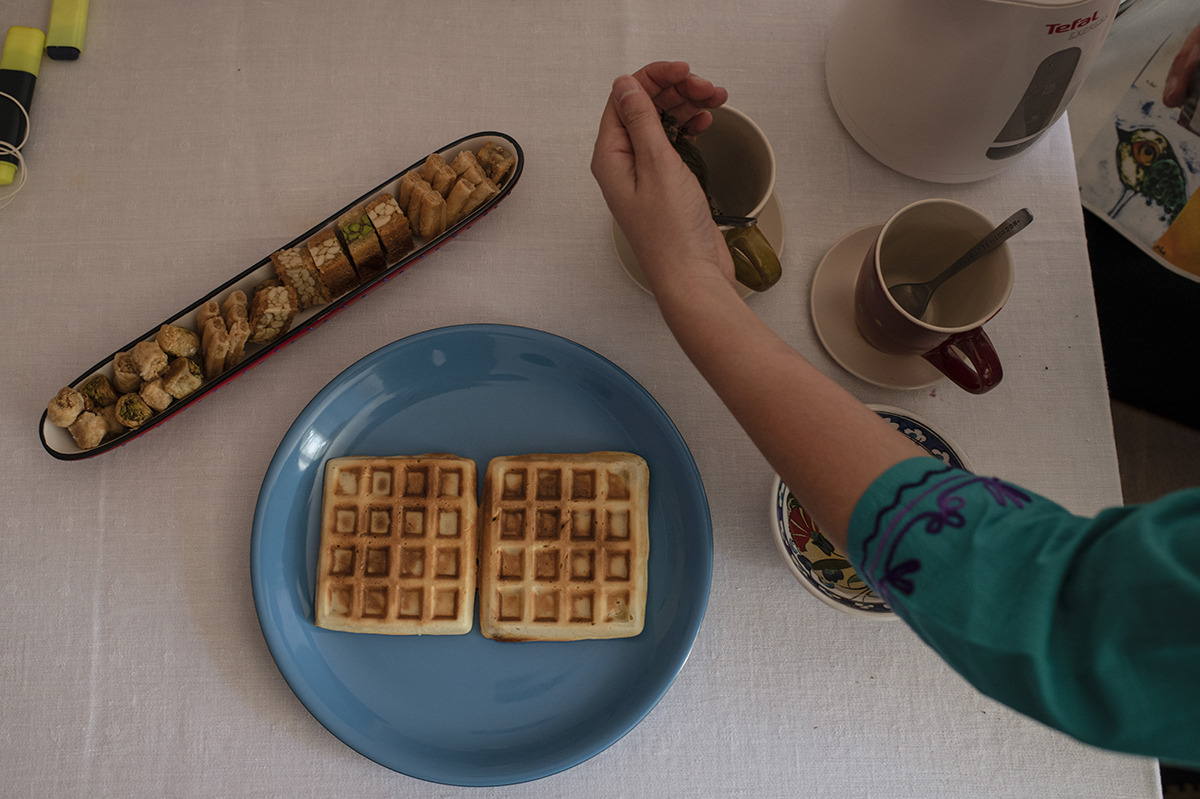
The waffles that Lena baked.
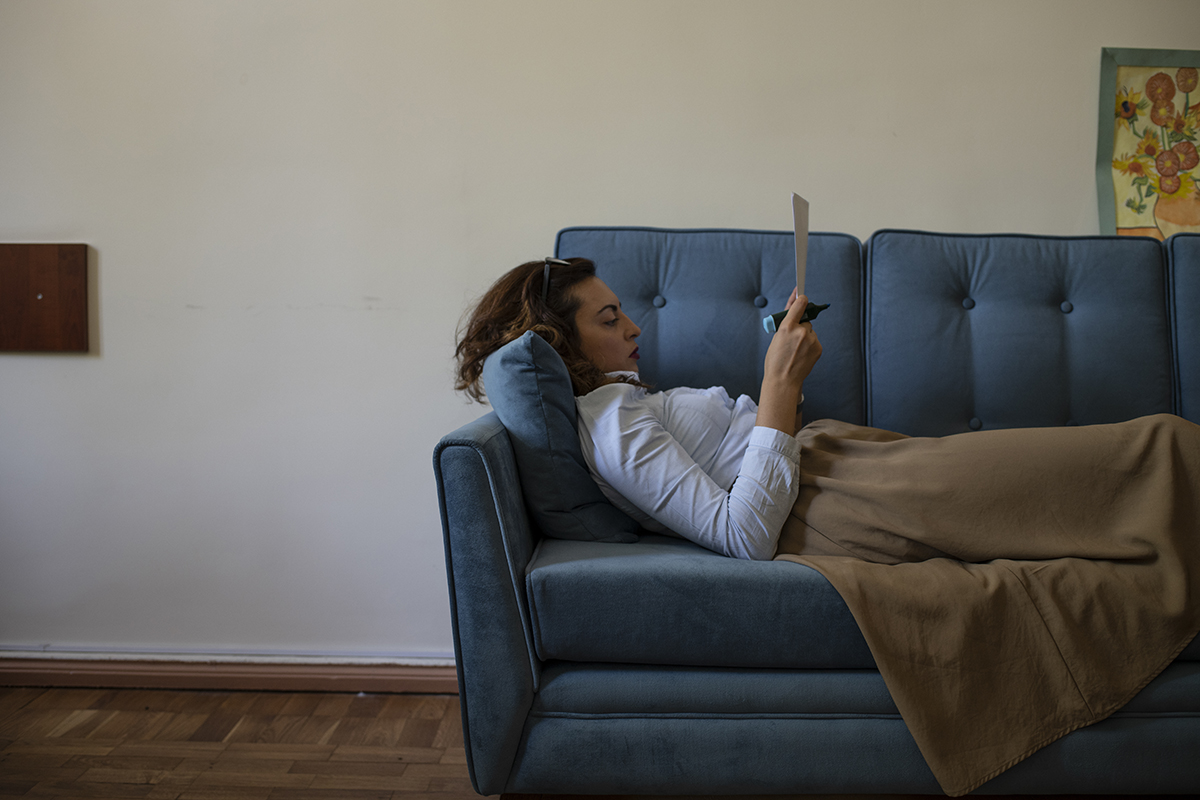
Lena in her working room. “Why did I choose this road? It is my nature. Everytime when I have the opportunity of making a choice – to remain here or to move forward – I always choose movement.”
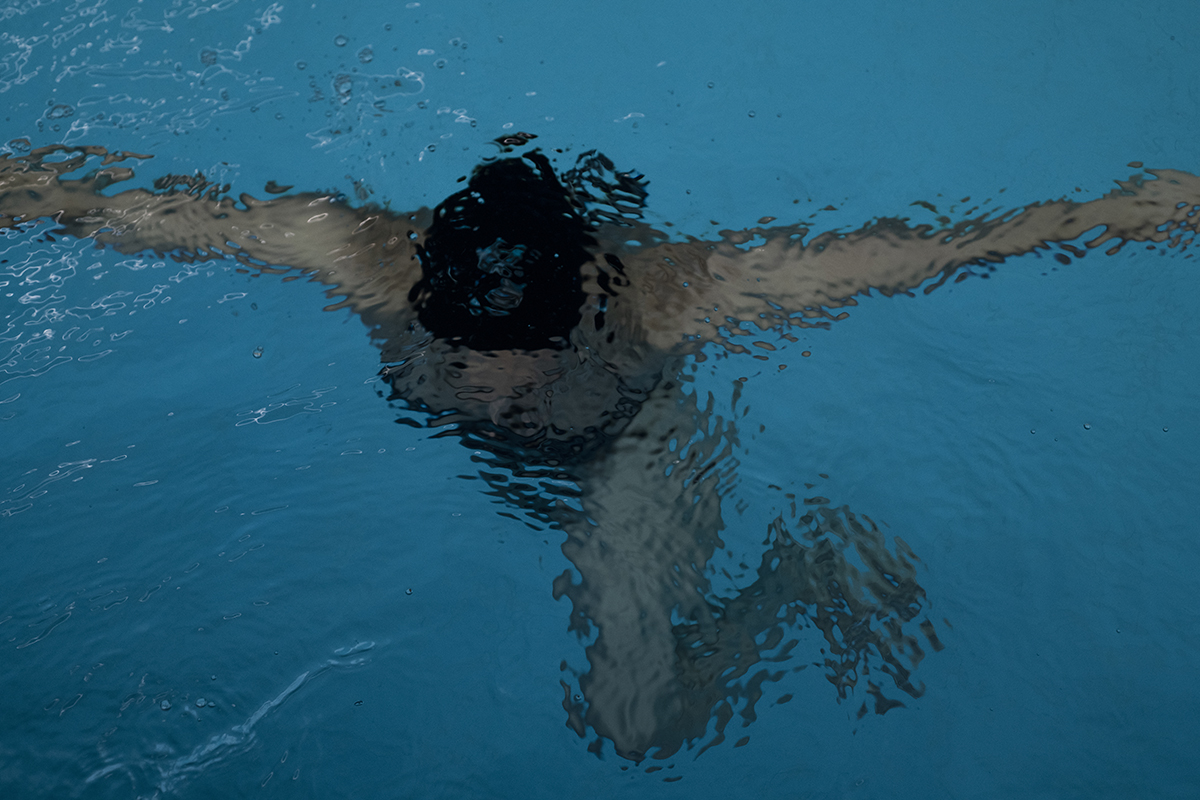
Lena in the swimming pool. “The swimming pool is a place for me to gather my thoughts. Swimming solves many questions, dealing with people becomes easier. This is a small gift that I allow myself during the day.”
Making a selfie during the Impact Hub annual event.
During the Impact Hub annual event.
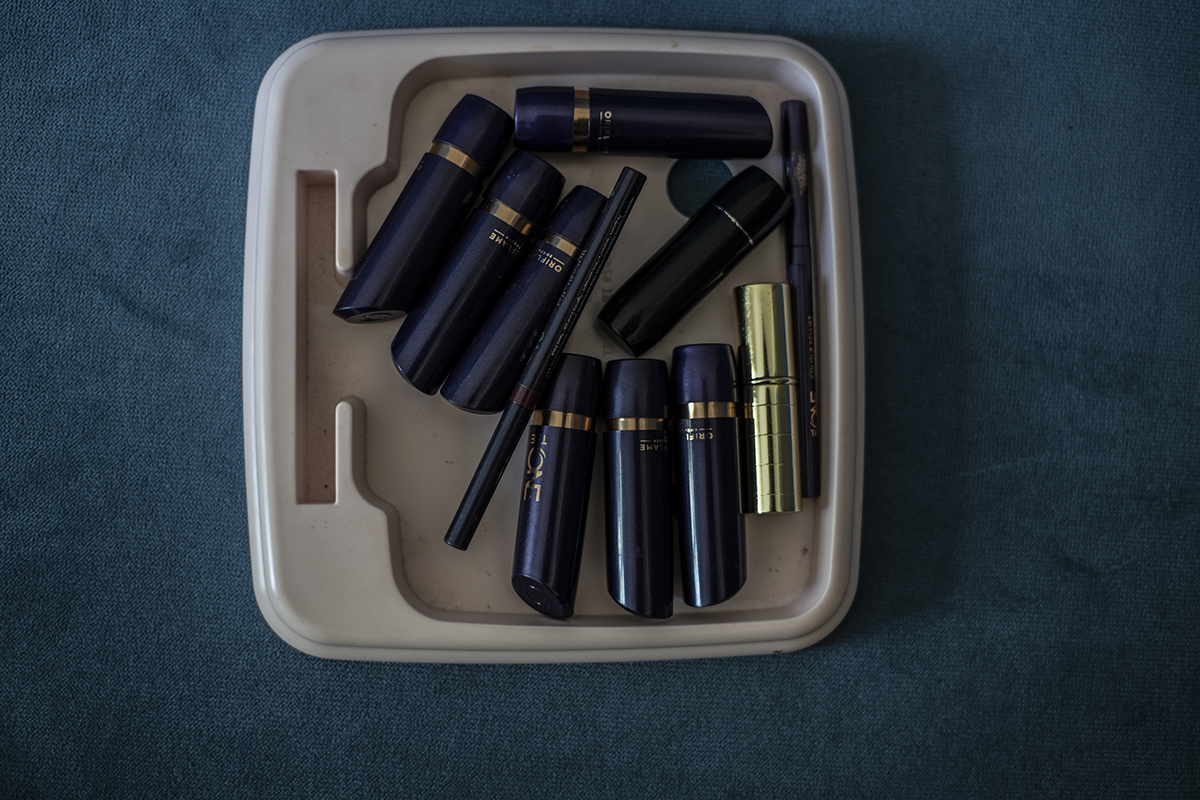
Lena’s lipsticks. She buys many and of deep colors.
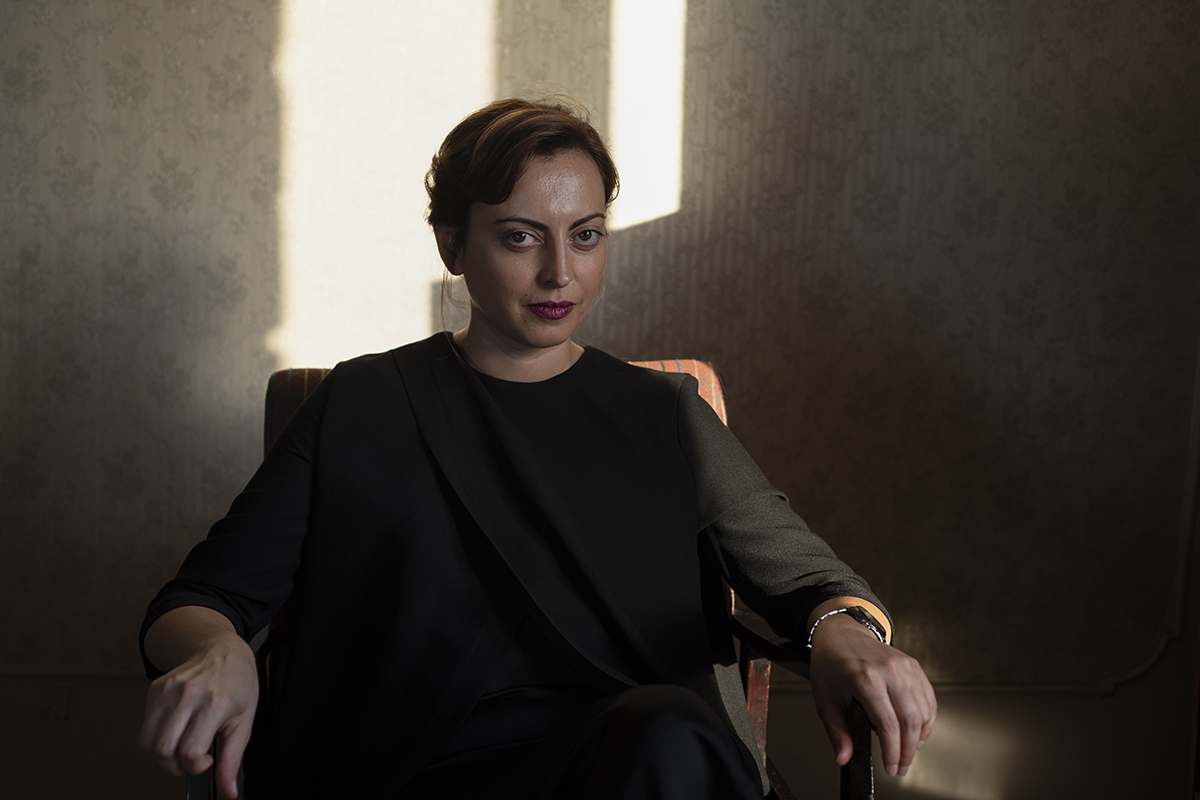
Lena’s portrait. “It is very important for a political figure to be convincing. The women, who have the “weapon” of their appearance, are more convincing. The behaviour, the way of greeting, the choice of which corner of the table to sit, having an opinion, making a decision are the pledges of a political figure in being convincing. At some certain moments they need to make a precise decision. In fact I am a combination. I can lead processes and be a part of the process. I can lead and be led.”
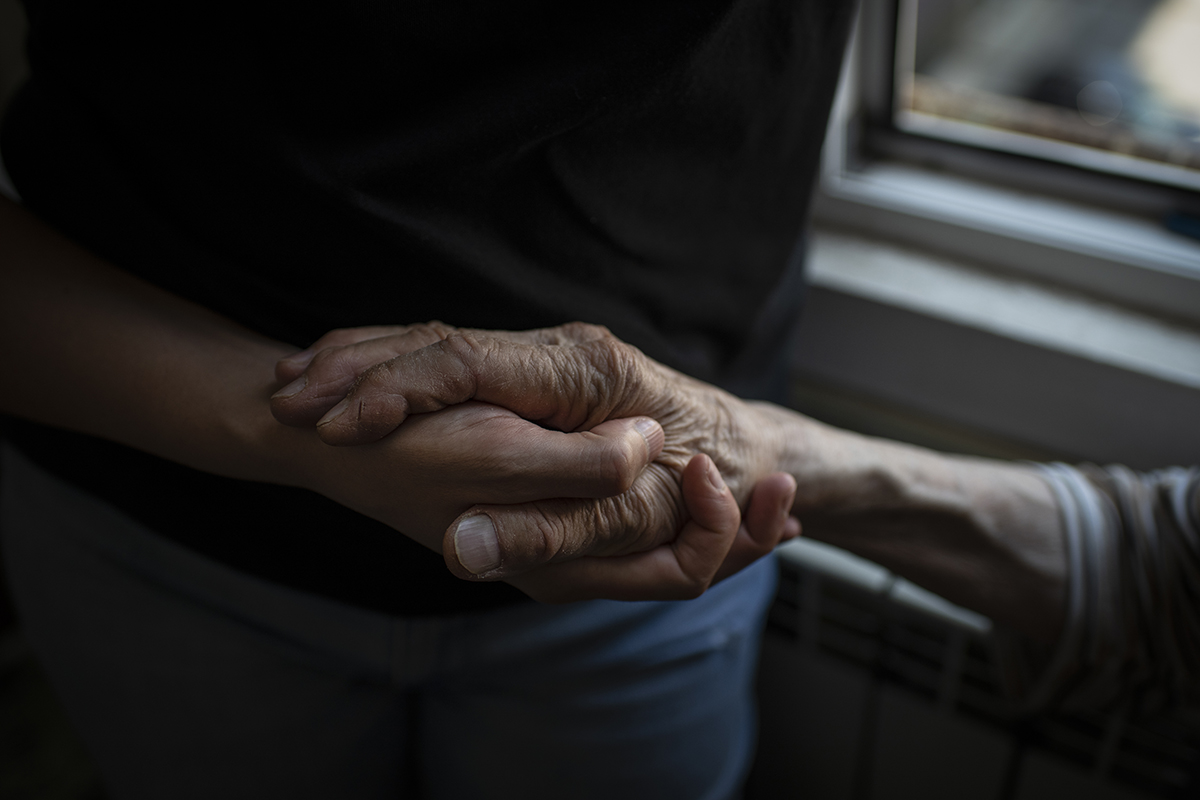
With her grandmother.
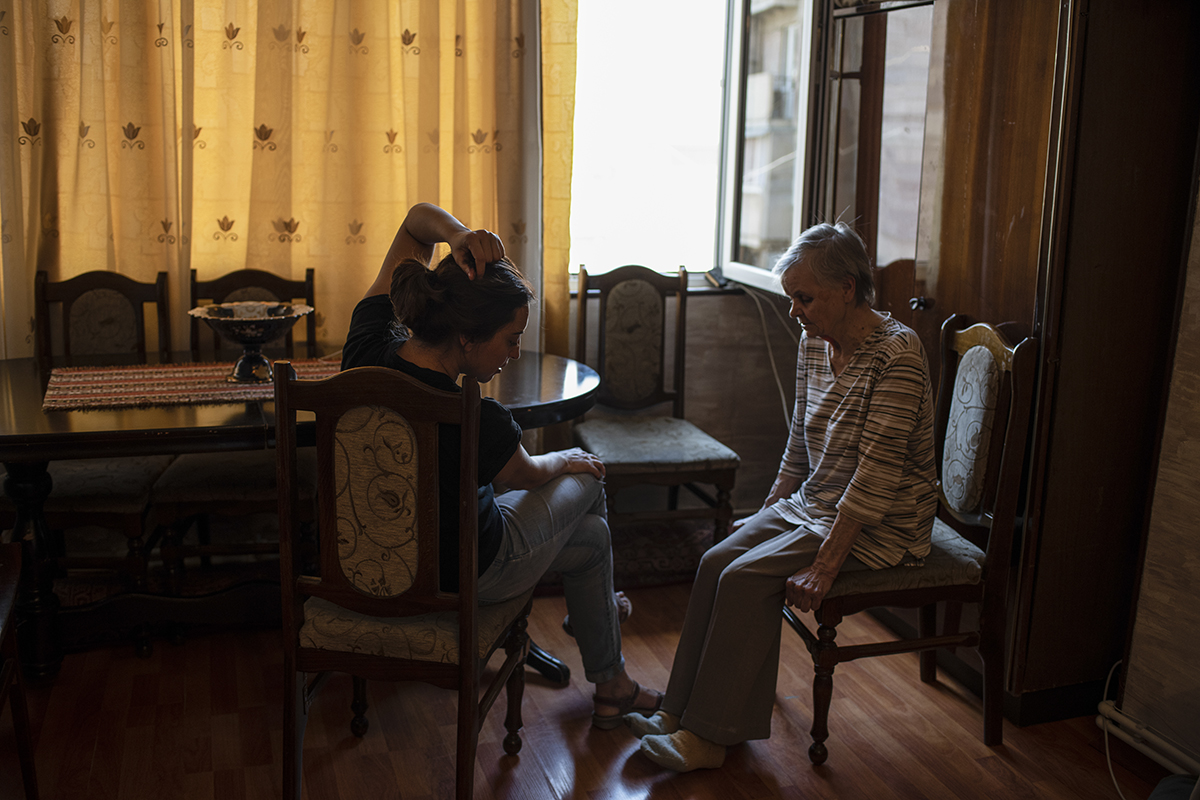
Lena with her grandmother Lena Bredeleva. The grandmother actively follows the politics and Lena’s activity. She says that she was very worried for Lena during the heated days of the revolution.
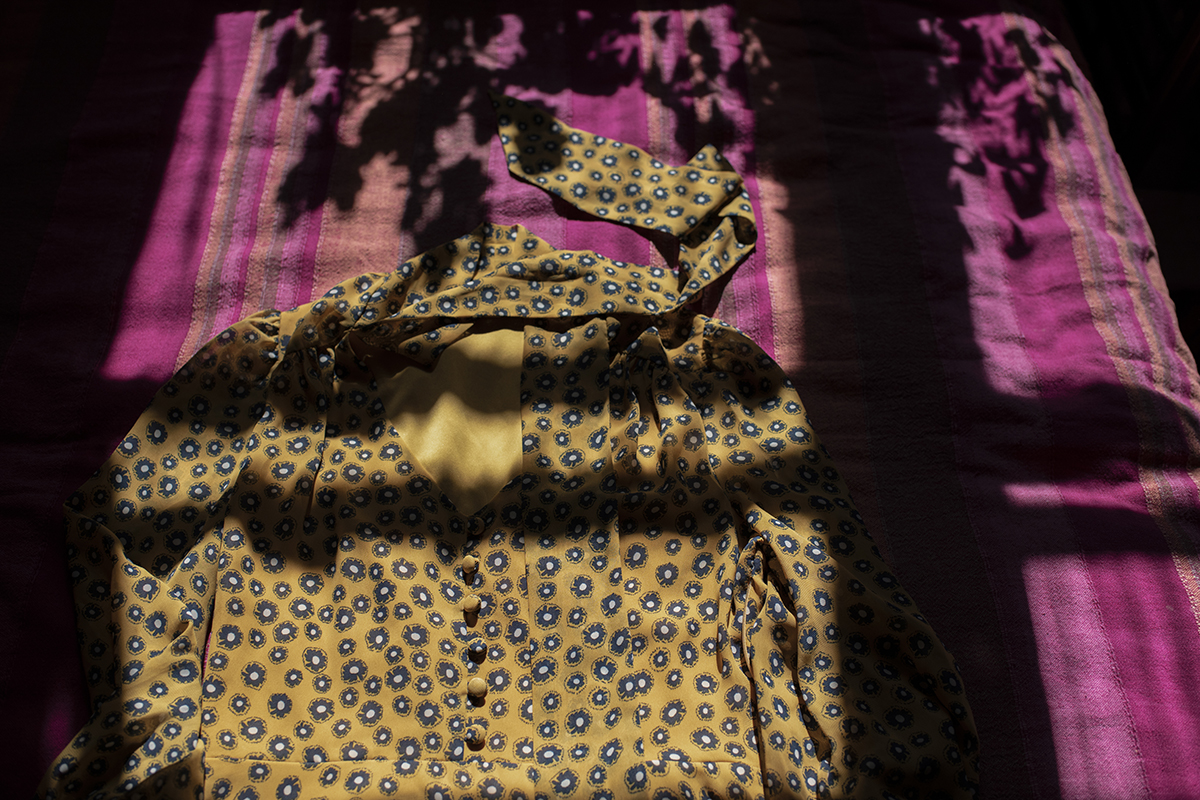
Lena’s dress.
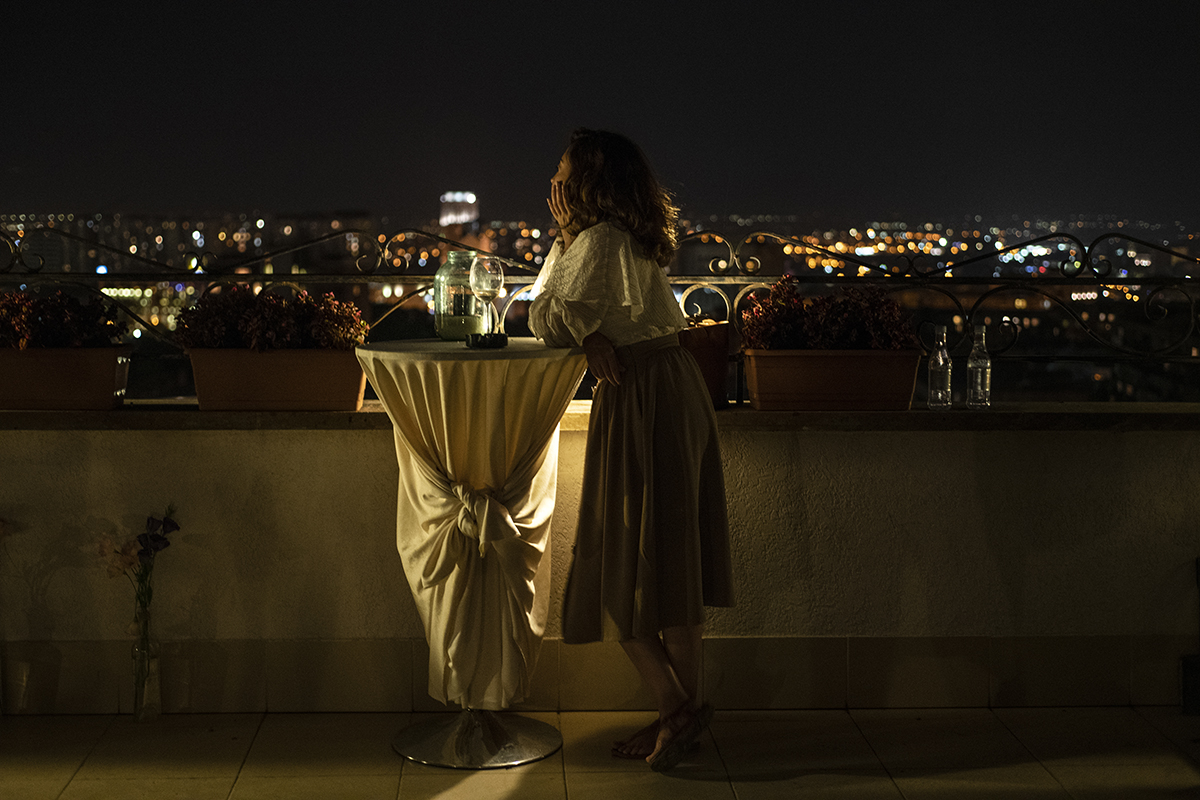
Lena during the Impact Hub annual event. “Our being, our being active and undertaking, our occupation with the problems that bother the citizens, our talking about those problems, our involvement into many social processes is itself the affirmation of women’s equality. Let’s not stress the vulnerability of women, let’s just be active, undertaking, let’s participate, let’s have opinions, share them and let’s confirm our equality.”
Our meetings and conversations developed during three months. I knew that camera could serve as a bridge and photographing as some certain right to pass a long time with Lena. When there is dialogue, cooperation, the relations develop, and taking photos becomes possible.
When photographing I found harbours, where the layers of Lena’s being a human, a woman, a political figure began to uncover, sometimes dismantling Lena’s social image.
I was trying to follow her in different situations, everytime discovering a new person. It was interesting, that even after one day Lena was not the same person as a day before.



